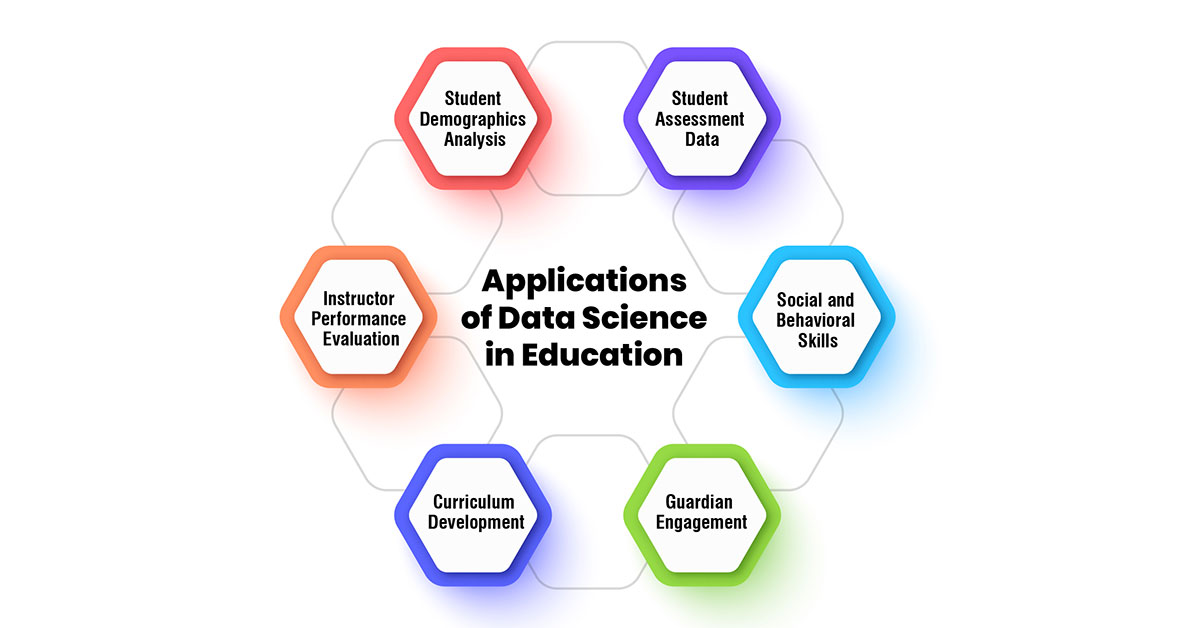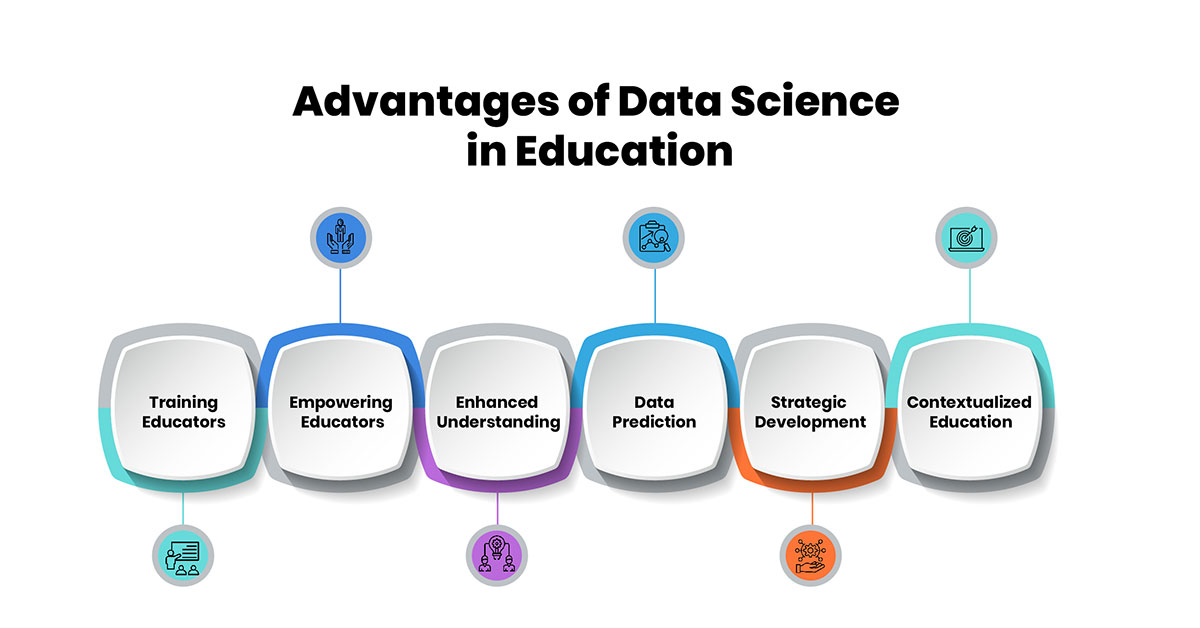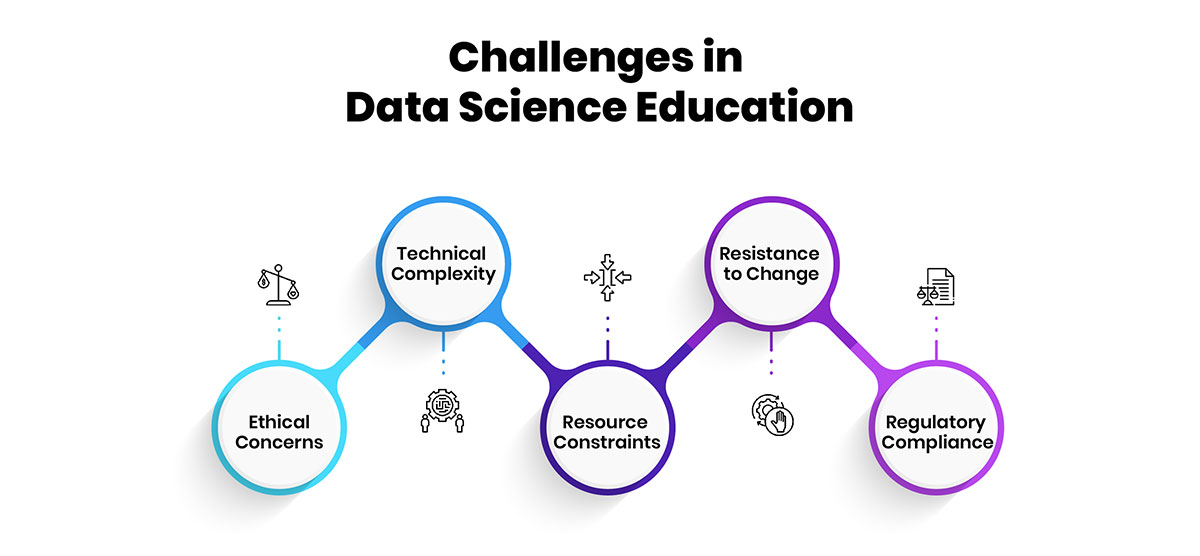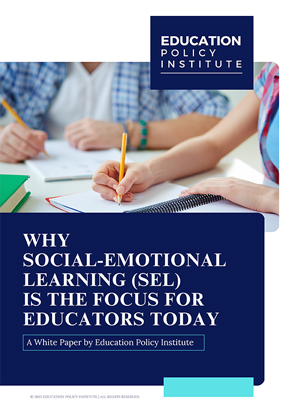Data science in education refers to the application of data analysis, machine learning, and statistical techniques to extract valuable insights and improve various aspects of the educational process.
It involves collecting, processing, and analyzing large volumes of data generated within educational institutions to enhance student learning outcomes, optimize teaching methods, personalize educational experiences, and streamline administrative processes.
Data science in education enables educators and policymakers to make data-driven decisions, identify trends and patterns, predict student performance, and develop targeted interventions to support student success.
Therefore, data science plays a great role in transforming education by leveraging data to inform evidence-based practices and drive continuous improvement in educational systems.
Role of Data Science in Education
In today's digital era, the education sector stands poised for transformation with the integration of data science.
Educational institutions hold a wealth of student data, from academic records to personal interests, which data scientists leverage to revolutionize teaching methodologies and personalize learning experiences.
By analyzing this data, educators gain insights into individual learning styles, enabling the implementation of adaptive learning techniques tailored to each student's unique needs.
Moreover, data-driven evaluations empower school administrators to assess teacher effectiveness, identify areas for improvement, and optimize educational practices.
As the COVID-19 pandemic have accelerated the shift towards online learning, data science played and will play a crucial role in monitoring student engagement, assessing learning outcomes, and refining online teaching methodologies.
Through data-driven decision-making, institutions continuously improve and innovate, ensuring that students receive the highest quality education to prepare them for success in a rapidly evolving world.
Applications of Data Science in Education
Data science has become a cornerstone of educational transformation, offering educators a wealth of tools and insights to navigate the complexities of modern learning environments.
One of its most impactful applications is in student assessment, where advanced analytics provide real-time feedback on student engagement, comprehension, and performance. By analyzing data from virtual classes and online assessments, teachers can identify struggling students early on and tailor their instruction to meet their individual needs.
Beyond academics, data science also plays a pivotal role in evaluating students' social and behavioral skills. By evaluating patterns in student interactions and behaviors, educators gain valuable insights into areas such as communication, collaboration, and emotional intelligence. This holistic approach to promote students' overall well-being and development.
Moreover, data science empowers educational institutions to optimize their curricula to better align with industry demands and academic standards. By calculating trends in various fields and gathering feedback from students and employers, institutions can ensure that their courses remain relevant and effective in preparing students for future careers.
This data-driven approach to curriculum development fosters innovation and adaptability, allowing institutions to stay ahead of the curve in a rapidly changing educational landscape.
In addition to improving student outcomes, data science also benefits educators by facilitating ongoing professional development and evaluation. By assessing data on teaching methodologies, student outcomes, and classroom dynamics, teacher training professionals can identify areas of strength and areas for improvement among teachers.
Here is a glimpse of all the major applications of data science in education along with their examples:

-
Student Assessment Data:
- Real-time analysis of student engagement, participation, and comprehension during virtual classes.
- Utilization of Big Data Analytics to assess student performance and identify areas for improvement.
- Example: Using data analytics platforms to track student progress and adapt teaching strategies accordingly, as implemented by the University of Florida.
-
Social and Behavioral Skills:
- Employing data science techniques to detect students' social and behavioral skills during online classes.
- Identifying students in need of additional support for personality development through data analysis.
- Example: Implementing algorithms to assess students' social interactions and behavior patterns to enhance their overall development.
-
Guardian Engagement:
- Utilizing data science tools to analyze parent-teacher workshop attendance and notify parents about missed events.
- Conducting personalized sessions for parents to emphasize the importance of their involvement in their children's education.
- Example: Sending targeted notifications to parents regarding workshops and events based on their engagement history, as practiced in educational institutions.
-
Curriculum Development:
- Leveraging data science tools to evaluate market trends and update curricula accordingly.
- Incorporating feedback from stakeholders and experts to enhance the quality and relevance of educational programs.
- Example: Using predictive analytics to forecast industry demands and adjust course offerings to meet future skill requirements, as done by various educational institutions.
-
Instructor Performance Evaluation:
- Analyzing teaching methodologies and student outcomes to assess instructor effectiveness. Employing data-driven insights to recognize teaching practices contributing to student success.
- Example: Using data analytics to compare teaching techniques with student performance data to identify effective teaching strategies and areas for improvement.
-
Student Demographics Analysis:
- Gathering demographic data to understand student backgrounds and tailor educational approaches accordingly.
- Adapting teaching methods to accommodate diverse student populations and preferences.
- Example: Analyzing student demographics to customize learning experiences and ensure inclusivity across diverse student groups.
Advantages of Data Science in Education
By harnessing the potential of data science, educators gain invaluable insights to refine teaching strategies and predict student outcomes, consequently revolutionizing the education paradigms.

-
Training Educators:
Data science enables the analysis of vast amounts of educational data, providing insights into prevalent issues within educational systems. By studying this data, trainers can gain a deeper understanding of challenges and develop effective solutions to improve teaching methodologies and student outcomes. -
Empowering Educators:
Data science empowers educators by providing tools for data visualization and predictive analysis. Educators can leverage these tools to identify patterns, trends, and potential challenges in student performance, allowing for proactive intervention and personalized instruction. -
Enhanced Understanding:
The abundance of education data can be visualized and analyzed to extract meaningful insights and understand complex records more effectively. Through condensing large datasets into digestible information, educators can gain valuable insights into student behavior, learning patterns, and instructional effectiveness. -
Data Prediction:
Data science enables the modeling and prediction of various educational issues, such as student attrition, dropout rates, learning delays, and assignment completions. When analyzing historical data and identifying predictive patterns, educators can anticipate potential challenges and implement targeted interventions to support student success. -
Strategic Development:
Existing education data serves as a valuable resource for evaluating trends, setting parameters, and developing strategies to enhance educational outcomes. By leveraging data-driven insights, educational institutions can make informed decisions regarding curriculum development, resource allocation, and instructional planning. -
Contextualized Education:
Large-scale data collection in education facilitates the identification of factors that contribute to the effectiveness of educational interventions. Contextualizing education based on data-driven insights, teachers can tailor instructional approaches to meet the diverse needs and preferences of students, ultimately improving learning outcomes.
Challenges of Data Science in Education
While data science can revolutionize educational systems by providing valuable insights and personalized learning experiences, several obstacles need to be addressed.

- Ethical Concerns: The use of student data raises ethical issues regarding privacy and consent, necessitating clear guidelines and supervision.
- Technical Complexity: Processing and analyzing large volumes of data require specialized skills and tools that many education systems lack.
- Resource Constraints: Education institutions may face challenges in acquiring the necessary resources, such as funding and expertise, to effectively implement data science initiatives.
- Resistance to Change: Resistance to change from educators, administrators, and other stakeholders can impede the adoption of data-driven practices in education. Overcoming resistance requires effective communication, stakeholder engagement, and a clear understanding of the benefits of data science.
- Regulatory Compliance: Education data is subject to various regulations and compliance requirements, such as FERPA (Family Educational Rights and Privacy Act). Ensuring compliance with these regulations while leveraging data for analysis and decision-making can be complex and challenging.
Conclusion
The integration of data science into education holds immense promise for revolutionizing teaching and learning processes, enhancing student outcomes, and driving continuous improvement in educational systems. However, this transformation is not without its challenges. With careful planning, investment in resources, and collaboration among stakeholders, data science can play a pivotal role in shaping the future of education, ensuring that all students receive the personalized support they need to thrive in a rapidly changing world.





